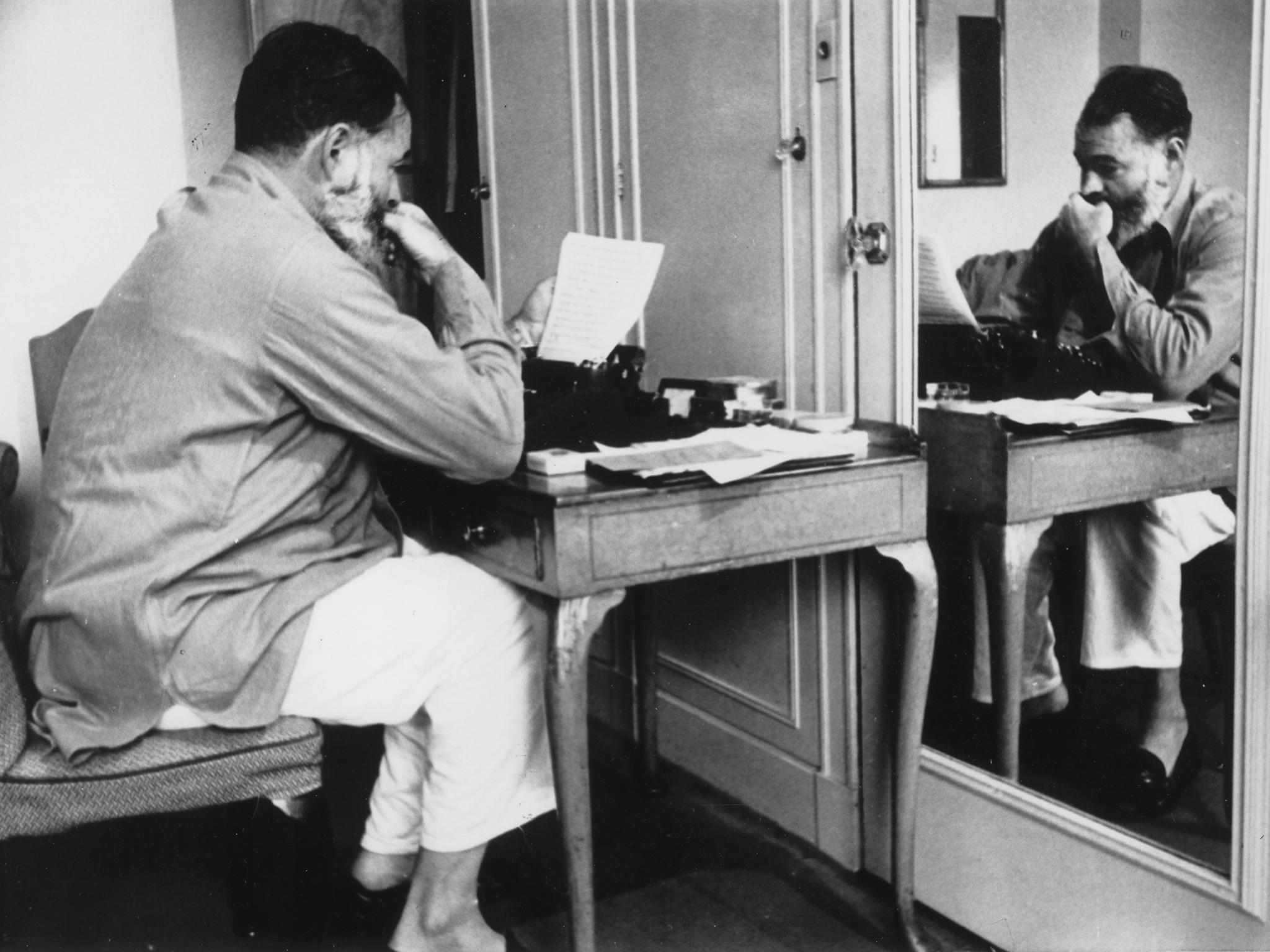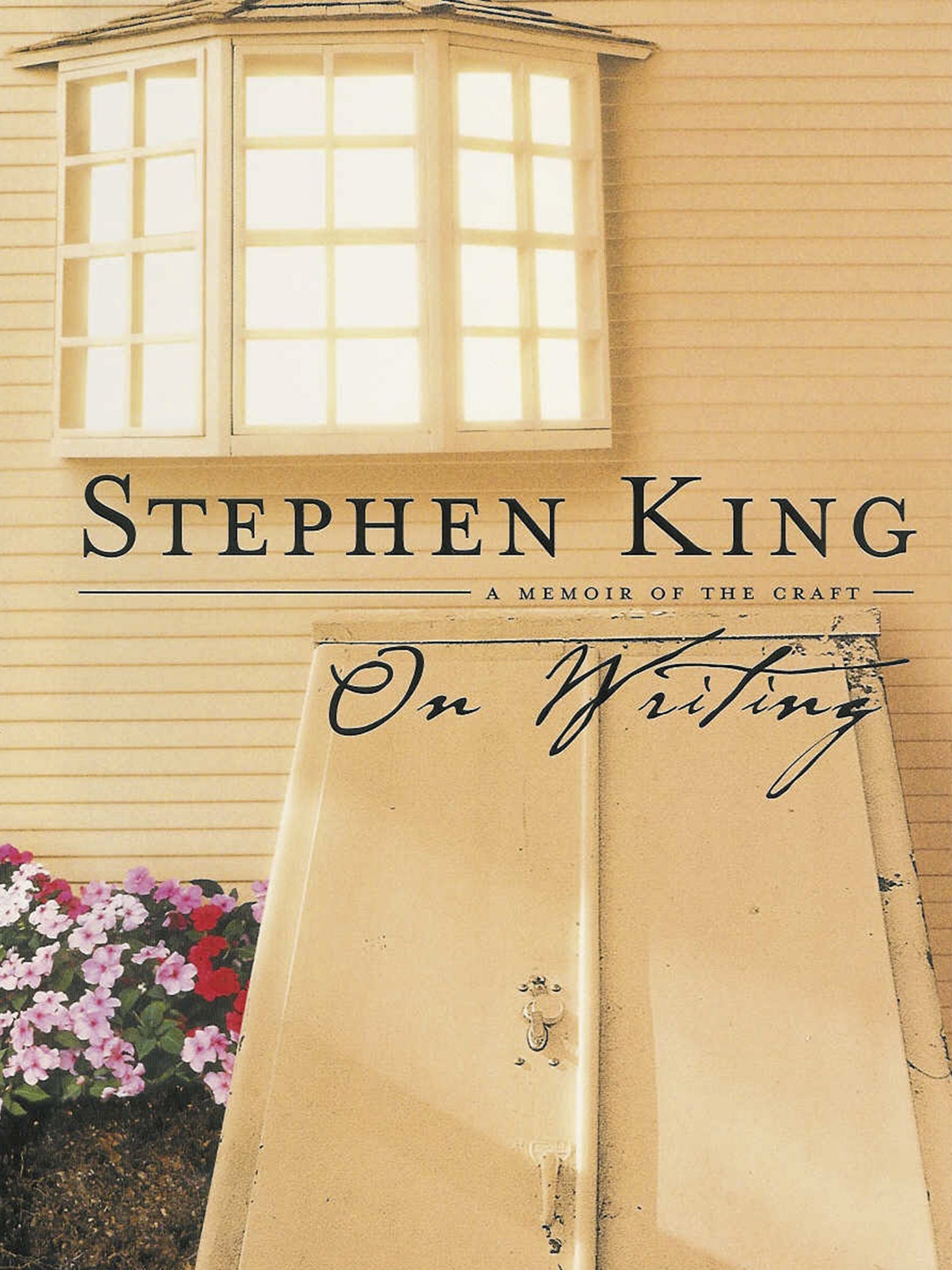The one piece of advice every aspiring author needs to know
We all know there’s more than one way to skin a cat, so why should advice on how to write be so prescriptive? Instead, David Barnett’s got something that he thinks is invaluable

Your support helps us to tell the story
This election is still a dead heat, according to most polls. In a fight with such wafer-thin margins, we need reporters on the ground talking to the people Trump and Harris are courting. Your support allows us to keep sending journalists to the story.
The Independent is trusted by 27 million Americans from across the entire political spectrum every month. Unlike many other quality news outlets, we choose not to lock you out of our reporting and analysis with paywalls. But quality journalism must still be paid for.
Help us keep bring these critical stories to light. Your support makes all the difference.
If you are one of the millions of people who aspire to be a published author, I have some writing advice for you: never listen to writing advice.
Not that it’s easy to avoid. If you go on Twitter and follow the hashtag #amwriting you’ll get more unsolicited advice than you know what to do with. Do this, do that, don’t on any account do the other. Everyone it seems, has some rules for you to follow.
Which is hardly surprising, as literally almost everybody is writing a book. And I use the phrase “literally almost everybody” advisedly. At the BookExpo America conference in 2015, author Jane McGonigal claimed that 90 per cent of young people in the US say they want to write a book.
That’s a lot of potential authors… in fact, if my quick calculations are right, and we take “young people” to be up to the age of 24, that means 75.6 million young people in the States have aspirations to be novelists. That’s 10 million more people than the entire population of the UK, and doesn’t take into account all those over the age of 25. Which, in a country where the illiteracy rate is something like 14 per cent, is frankly astonishing.
And possibly crap. Here’s not some writing advice for you, but an honest-to-goodness law, as laid down by the science fiction author Theodore Sturgeon: 90 per cent of everything is crap. Curiously, that’s the same percentage as the young population of America which wants to write a book. And – though I have as much scientific backup for this as Sturgeon did for his law – the same percentage of writing advice, I’d warrant, that also qualifies as crap.
Why am I so down on writing advice? Because it’s often so prescriptive, as though there’s only one way to skin a cat. Which there isn’t. The reason a lot of us do genuinely like to hear about authors’ writing processes is because they’re very often wildly different from each other.
If they were all the same – and edicts about how you should and shouldn’t go about writing would wrongly suggest they are – then we’d only have to hear Neil Gaiman or Gillian Flynn or JK Rowling explain the process once at some book festival, and we’d know how everyone does it.
It’s also rather annoying that writers feel the need to issue edicts, as though writing is actually some magical, special, superhuman process that mere mortals can only aspire to. Let’s get this right, writing a book isn’t easy. Writing a good book is harder still. Writing a book that is not just good, but great, and worthy of a publisher throwing money at you, is very, very difficult. But it’s also not rocket science, nor brain surgery. Which is evident by the almost complete absence of rocket scientists and brain surgeons offering Twitter advice on their particular disciplines.

And that may be because, apart from a few tweaks here and there, there really is only one way to science a rocket or surgeon a brain.There’s no room for experimentation, for doing it at your own pace, for finding your own path. Which – advice, ahoy! – are all things you should be doing if you decide to write a book.
A couple of months ago the writer Flic Everett tweeted: “I wish plumbers were as fascinated by themselves as some writers are. They could post little ‘plumbing is so tough, need coffee!!’ memes and be all humble about their plumbing awards and recognise each other on Twitter via the hashtag #amplumbing”.
You don’t get that much, do you? There is very rarely advice or bragging from plumbers along the lines of “You need to put at least one toilet in a week if you’re going to call yourself a pipe monkey!” or “sealed a dozen pipes with PTFE tape this weekend – no rest for the real plumber!”
So I asked Twitter what sort of writing advice they see a lot which really annoys them. By far the most unpopular edict was the oft-trotted out, “You have to write every day.” The adjunct to this is usually that your daily output should generally be about 1,000 words.
As with all writing advice, there’s a grain of common sense in it. If you are planning to write a book, then at some point you should actually, you know, put some words together. But there’s nothing enshrined in law that says you have to do this every single day, nor do the requisite 1,000 words, which could be three or four hours’ work, or more, for the fledgling writer.
This is an example of the “advice” which some writers come out with which is disguised as inspirational but is actually thinly veiled macho bullshit designed to paint the author in question as some kind of tough-as-old-boots Hemingway-esque hard man of letters.
Similarly, there are many pronouncements that to be a writer you have to give up all of your free time. Again, a kernel of truth; novels don’t write themselves. You’re going to have to steal that time from somewhere, whether it’s foregoing Love Island or getting up an hour earlier, or going to bed an hour later.
But I saw a Friday tweet recently saying something along the lines of, oh, it’s the weekend again, or as we writers know it, 48 hours of hard work and crushing anxiety. Statements like this suggest as a writer you aren’t allowed free time, that weekends are for locking yourself away from your loved ones and sweating words. Which, sometimes, they are, especially if you’ve got a deadline approaching. But weekends, and evenings, and bank holidays… they should be for recharging and relaxing as well.
Again, it’s more to do with the person making the statement than any real advice for would-be writers. It’s the Hemingway thing again. Get up at 5am. Write a thousand words. Have three mojitos for breakfast. Go and wrestle a shark. Make violent love to a woman. Smoke a cigar. Skip lunch. Write another thousand words. Be a real goddam writer! Sleep when your dead!
Such “advice” is actually counter-productive to the new writer, and I suspect that’s kind of the point. Those setting out on the writing journey might look in awe at @RealGoddamWriter (if that’s actually a genuine account, I apologise in advance) and think, “Well, it’s good of them to share these vital rules for writing, but given that I have a day job and two kids and really, really, really want to watch Love Island tonight, I’m never going to be as good as this person so I’ll just go and weep into my Scrivener app.”

Oh, here’s another piece of most-hated advice from my quick Twitter survey: write what you know. This can be a double-edged sword, because if you do know some good stuff, or have had a few life experiences, it’s not a bad idea to utilise it. Had kids? You’ll know what childbirth feels like. Lost a loved one? You can write bereavement from a position of knowledge. Done a bit of brain surgery? Well, what are you writing a novel for? There’s no money in it, you know.
But if we all confined ourselves to writing what we have direct experience of, there’d be no science fiction or fantasy novels. I had a novel published last year about a man on his way to Mars. Come closer, I have a secret: I’m not an astronaut and have never been to space.
It’s also a little curious that most writing advice on social media comes from authors who you might not necessarily class as bestsellers. Now, I’m not suggesting only those writers who make the top ten are worth a damn, but unsolicited rules and edicts usually come from authors who are not exactly household names.
In fact, call me shallow, but when big-name authors do offer advice, I listen. One of my favourite books – and if you want to write anything yourself, you could do worse than check it out – is On Writing by Stephen King. It’s partly a memoir, and partly an exploration of his own writing process.

It’s hugely interesting and inspirational, but it’s also a book that is there only if you seek it out. King (and I could be wrong here, but I don’t think I am) rarely takes to Twitter to tell other people how to write. Indeed, in his second foreword in the book he writes: “This is a short book because most books about writing are filled with bullshit. Fiction writers, present company included, don’t understand very much about what they do – not why it works when it’s good, not why it doesn’t when it’s bad. I figured the shorter the book, the less the bullshit.”
I’m also fond of what Neil Gaiman said in his 2012 keynote speech to the University of the Arts, which was basically that the best thing to do is ignore advice and plough your own furrow, because then you don’t know what you’re doing is considered wrong: “People who know what they are doing know the rules, and know what is possible and impossible. You do not. And you should not. The rules on what is possible and impossible in the arts were made by people who had not tested the bounds of the possible by going beyond them.”
Of course, big-name writers have also been prescriptive. Raymond Chandler wrote his Ten Commandments for writing a detective novel. But then, Chandler was a genius, and he put together his rules (sample: it must be honest with the reader) seven or eight decades ago, and didn’t clog up my Twitter feed with them.
Even Hemingway, our tough guy of American letters, offered writing guidance here and there. Strangely, very little of it was to do with wrestling bears or typing while running away from bulls. In fact, one of this best nuggets, which is from his memoir A Moveable Feast, is actually advice to himself on getting over writer’s block: “Do not worry. You have always written before and you will write now. All you have to do is write one true sentence. Write the truest sentence that you know.”
When I asked people on Twitter for their most hated writing advice, I also asked for the most useful. Practically everyone said the same thing, and I offer it to you now. You may, of course, ignore it completely, but all I can say is, I think you’d be wise not to.
The advice is this: if you want to write, then read. Read novels in the area that you’re writing. Read novels in the area that you’re not writing. Read non-fiction. Read the news. Read the back of a Coco-Pops box. Learn how sentences are put together, how stories work, how novels are structured. Learn how Coco-Pops are made, because you never know when you’ll need that information.
You wouldn’t expect to play for England without ever watching a football match, no matter how good you think you are hoofing a battered old leather ball around the park on your own. It’s the same with writing. See how others do it, then work out how you’re going to do it yourself. And never let anyone tell you that you’re doing it wrong, or that you should be doing it their way.
So, what are you waiting for? Go write a book. But first, maybe go read one.
Subscribe to Independent Premium to bookmark this article
Want to bookmark your favourite articles and stories to read or reference later? Start your Independent Premium subscription today.
Join our commenting forum
Join thought-provoking conversations, follow other Independent readers and see their replies
Comments